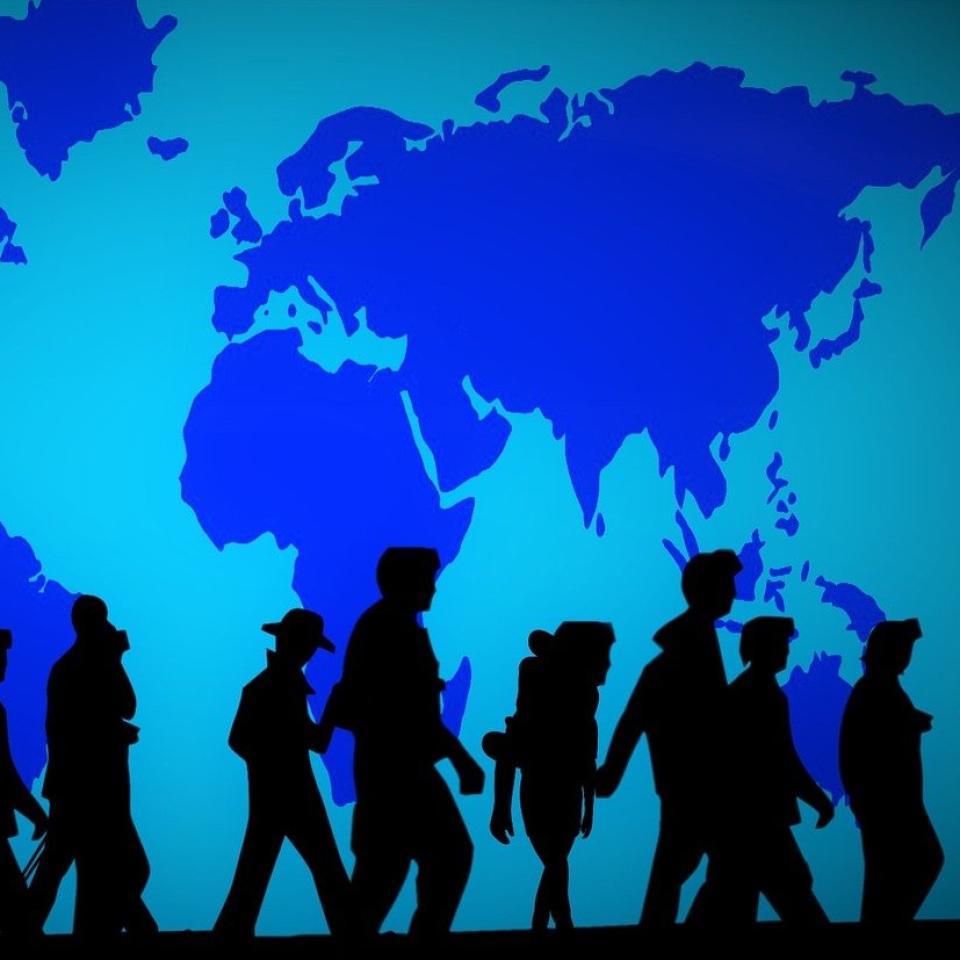
Changing perceptions and increasing the safety of migrants
Research by The Open University has helped to improve the safety of refugees and changed public perceptions of migrants and migration.
Migration isn’t new. People have always left their homes in search of safety and a better life. Today, migration and displacement are widespread. Every day, people risk their lives to escape conflict, political and economic instability, and the impact of climate change.
The research team at The Open University set out to promote a better understanding of migrants and to increase their safety by improving access to trustworthy news and information. OU research had previously identified that asylum seekers are often exposed to disinformation and misleading accounts of life as a migrant spread by traffickers and people smugglers even though they received most information from trusted sources of friends and families.
The research team:
- developed a multi-stakeholder research framework to bridge gaps in understanding and values between policymakers, refugee support organisations and services, and migrants
- highlighted the diplomatic and cultural role of international broadcasters who were able to reach and engage overseas audiences to better inform migrants prior to departure
- Collaborated with European Commission, international broadcasters and refugees support organisations to create a new multilingual platform for migrants with reliable news and information about migration
The team’s research has:
Led to improved access to reliable news and information
The team’s research led the European Commission to award €15 million to a consortium of European broadcasters to run the InfoMigrants website. To date, the site has reached 54.3 million users in five languages and has reduced migrants’ dependency on misinformation and fake news on social media.
Improved international communication with and about migrants
The team collaborated with UN Women in Jordan, which led to changes in policy and practice on digital access, use, and inclusion, for civic participation and community engagement.
Changed public perceptions of and provided a platform for migrants
The research team contributed knowledge, fact-checking, ethical advice, and feedback to the production team of the BBC documentary series Exodus: Our Journey to Europe. The programmes were seen by more than 4.3 million people in the UK and changed audience perceptions: “The heroes of the documentary are Akkad and the other refugees […] their bravery has helped create the most powerful and moving account of the refugee crisis to date.”
The research team contributed to the Who Are We? Tate Exchange programme, which was based on the concept of cultural citizenship. One visitor said, “[It] definitely broadened my understanding and deepened my compassion for people displaced by war.”
The team also created a digital resource, Covid Chronicles from the Margins, in response to the problems and opportunities the pandemic caused for migrants. A representative from an asylum-seeker support group said, “It is rare for refugees to find such a platform […]. It is a living archive of this extraordinary moment [and] will last forever as a piece of oral history that promoted the rights of asylum-seekers.”
Improved access to education and learning
The Open University in Wales offered a series of online interactive workshops during the pandemic for asylum seekers and refugees in Wales that provided information about free, online, high quality learning materials that improved access to education and learning.
Note: The term ‘migrant’ in this case study refers to refugees, asylum seekers, diaspora and undocumented groups.
Research team
Professor Marie Gillespie and Professor Umut Erel – The Open University
Research partners
European Commission, British Broadcasting Corporation (BBC), France Medias Monde, DEUTSche Welle
